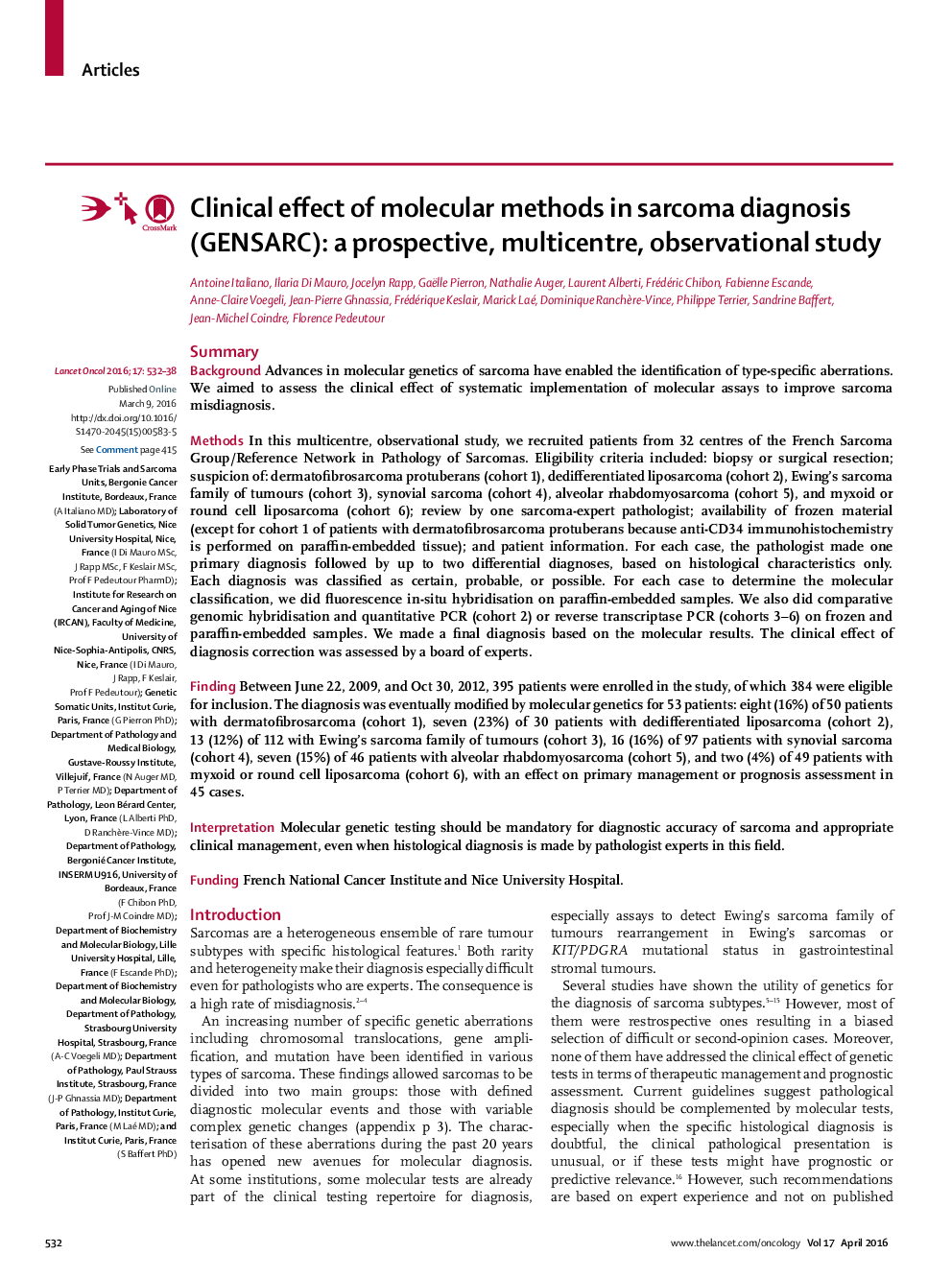| کد مقاله | کد نشریه | سال انتشار | مقاله انگلیسی | نسخه تمام متن |
|---|---|---|---|---|
| 3993291 | 1258843 | 2016 | 7 صفحه PDF | دانلود رایگان |

SummaryBackgroundAdvances in molecular genetics of sarcoma have enabled the identification of type-specific aberrations. We aimed to assess the clinical effect of systematic implementation of molecular assays to improve sarcoma misdiagnosis.MethodsIn this multicentre, observational study, we recruited patients from 32 centres of the French Sarcoma Group/Reference Network in Pathology of Sarcomas. Eligibility criteria included: biopsy or surgical resection; suspicion of: dermatofibrosarcoma protuberans (cohort 1), dedifferentiated liposarcoma (cohort 2), Ewing's sarcoma family of tumours (cohort 3), synovial sarcoma (cohort 4), alveolar rhabdomyosarcoma (cohort 5), and myxoid or round cell liposarcoma (cohort 6); review by one sarcoma-expert pathologist; availability of frozen material (except for cohort 1 of patients with dermatofibrosarcoma protuberans because anti-CD34 immunohistochemistry is performed on paraffin-embedded tissue); and patient information. For each case, the pathologist made one primary diagnosis followed by up to two differential diagnoses, based on histological characteristics only. Each diagnosis was classified as certain, probable, or possible. For each case to determine the molecular classification, we did fluorescence in-situ hybridisation on paraffin-embedded samples. We also did comparative genomic hybridisation and quantitative PCR (cohort 2) or reverse transcriptase PCR (cohorts 3–6) on frozen and paraffin-embedded samples. We made a final diagnosis based on the molecular results. The clinical effect of diagnosis correction was assessed by a board of experts.FindingBetween June 22, 2009, and Oct 30, 2012, 395 patients were enrolled in the study, of which 384 were eligible for inclusion. The diagnosis was eventually modified by molecular genetics for 53 patients: eight (16%) of 50 patients with dermatofibrosarcoma (cohort 1), seven (23%) of 30 patients with dedifferentiated liposarcoma (cohort 2), 13 (12%) of 112 with Ewing's sarcoma family of tumours (cohort 3), 16 (16%) of 97 patients with synovial sarcoma (cohort 4), seven (15%) of 46 patients with alveolar rhabdomyosarcoma (cohort 5), and two (4%) of 49 patients with myxoid or round cell liposarcoma (cohort 6), with an effect on primary management or prognosis assessment in 45 cases.InterpretationMolecular genetic testing should be mandatory for diagnostic accuracy of sarcoma and appropriate clinical management, even when histological diagnosis is made by pathologist experts in this field.FundingFrench National Cancer Institute and Nice University Hospital.
Journal: - Volume 17, Issue 4, April 2016, Pages 532–538